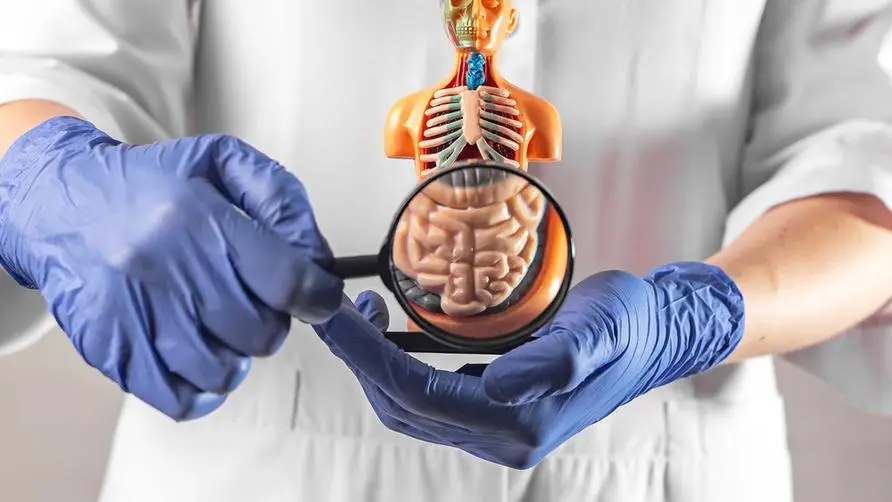Yu Yuanqi passed away/20% of colorectal cancer is related to genetics! Risk factors and common symptoms at once

Yu Tian’s daughter Yu Yuanqi died of rectal cancer yesterday (21st). In fact, colorectal cancer ranks first among the “Top Ten Cancers” for many years. More than 10,000 people are diagnosed with cancer every year, and more than half of them die from cancer. Taiwan Ministry of Health and Welfare, Health Promotion Administration pointed out that there are no specific symptoms of early stage colorectal cancer, and the most reliable way is to detect early cancer cells through “colorectal cancer screening” and treat them.
Is colorectal cancer asymptomatic in its early stages? What causes an increased risk of colorectal cancer?
There are no specific signs of colorectal cancer in its early stages. What symptoms should you seek medical attention? According to Taiwan Health Promotion Administration, clinical statistics show that the most common symptoms of colorectal cancer patients are bloody stools, mucus in the stools, changes in defecation habits (such as diarrhea and constipation); in addition, the stools become thinner and smaller, frequent diarrhea or constipation, Weight loss, anemia, palpable lump in abdomen, etc. If similar symptoms occur, you can seek examination from a specialist.
What are the risk factors for colorectal cancer? Taiwan Health Promotion Administration pointed out that including age (over 50 years old), excessive animal fat intake, obesity, lack of exercise, smoking, and family history of colorectal cancer, among which genetics accounts for about 20% of the main causes of colorectal cancer in patients. .
In addition, according to the American Cancer Society (ACS), a history of colorectal polyps, inflammatory bowel disease (IBD), Lynch Syndrome, or a rare genetic disorder associated with colorectal cancer such as Peltz -PJS syndrome (PJS) and MUTYH-associated polyps (MAP) may also be related to the occurrence of colorectal cancer. Early screening is recommended for the above-mentioned groups.
It is worth mentioning that according to data from the Harvard School of Public Health, red meat and processed meat (such as bacon, sausage, ham) are significantly related to colorectal cancer. The possible reason is that red meat causes “alkylation mutation characteristics” (1 a specific pattern of DNA damage). Research claims that preservatives in processed meat often contain “alkylating agents”, which can easily cause damage to intestinal DNA and increase the risk of cancer cells.
This examination reduces the risk of colorectal cancer by 30%! Screening every 2 years for those over 50 years old
Although colorectal cancer has no obvious symptoms in its early stages, if treated properly, the early survival rate is as high as over 90%. Colorectal cancer is mainly caused by the canceration of “adenomatous polyps” in the large intestine. Therefore, if adenomatous polyps can be detected early and removed, the risk of cancer can be significantly reduced. According to the experience of European and American countries, fecal occult blood screening every 1-2 years can reduce colorectal cancer mortality by approximately 18%-33%.
Taiwan Health Promotion Administration recommends that people develop the habit of regular screening; because colorectal cancer mostly occurs after the age of 50, people aged 50-75 should undergo fecal occult blood tests every 1-2 years. People with personal or family polyps, Those with a history of colorectal cancer should undergo full colonoscopy directly. According to Taiwan’s screening evidence, fecal occult blood screening every two years can reduce colorectal cancer mortality by approximately 35%.
If the fecal occult blood test result is positive, it is recommended to undergo colonoscopy at the Department of Colorectal Surgery, Gastroenterology and Hepatobiliary Surgery, Department of Gastroenterology, or General Surgery. If there are signs of disease or polyps during the examination, samples can be taken directly for sectioning or removal. For those who are not suitable for invasive colonoscopy, barium colonoscopy plus sigmoidoscopy may be considered.
How to prevent colorectal cancer? Remember “two more and one less” in daily life
Taiwan Health Promotion Administration shows that the occurrence of colorectal cancer is mostly related to incorrect diet and lack of exercise. Therefore, achieve “two more and one less” in daily life: more exercise, more fruits and vegetables, and less red meat are the health tips for preventing colorectal cancer:
Exercise more: The risk of obese people suffering from colorectal cancer is 1-2 times higher than that of the average person, and 21-25% of colorectal cancer can be attributed to lack of physical activity. In response to the raging new coronavirus, the public is encouraged to develop Good exercise habits can prevent cancer and epidemics through exercise.
Eat more fruits and vegetables: It is recommended to eat 3 servings of vegetables and 2 servings of fruits every day. One serving of vegetables is about half the size of a cooked rice bowl; one serving of fruit is equivalent to the size of a fist. Various vegetables contain vitamin A, vitamin C, iron, calcium, phytochemicals and other nutrients; the dietary fiber in them can maintain intestinal health and enhance resistance to pathogens waiting to invade.
Less red meat: The International Agency for Cancer points out that consuming more than 50 grams of processed meat or 100 grams of red meat (pig, sheep, cattle) per day will increase the risk of colorectal cancer by 17%. Therefore, the public is urged to eat less spicy hotpot, all-you-can-eat or barbecue, and should avoid overeating to avoid burdening the gastrointestinal tract.
Source:
Colorectal Cancer Risk Factors
Study sheds light on link between colorectal cancer and diet high in red meat
Further reading:





